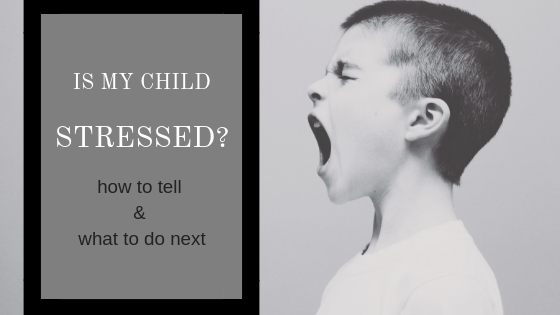|
We all know stress can lead to many problems. Stress can affect our emotions, mental health, relationships and our overall health. Stress affects our children in much the same way. Unfortunately, kids do not have the emotional awareness or vocabulary to express that they are feeling stressed. It usually comes out in emotional and behavioral outbursts. Stress in children can have lasting effects. So much so that University of Wisconsin Madison researchers found that long term stress in children can actually change their genes. Identifying and treating stress in your child can lower their risk of anxiety, depression and other mental health issues later in life. Is my child stressed? Identifying stress in children can be difficult. If your child demonstrates challenging behavior or mood swings, consider if it could be related to a stress response. Stress and anxiety can also manifest as fears especially in younger children. An example of this is when a child starts to be afraid to go to school and become very clingy. While this is very typical of many children, if this behavior is more intense or the duration is longer than other children, it may be a concern. What's causing the stress? Think about what could be possible sources of stress. Is your child or family going through a change or transition? Is your child's schedule a possible cause of stress? Is there conflict in the home that your child is picking up on? Is your child a perfectionist or a struggling learner? Is your child having issues with other children? Remember a child cannot rationalize or think critically about situations, so even something seemingly insignificant can cause a stress response in a child. Depending on the age of your child, have a conversation about what stress is and what it feels like. This conversation may help your child identify if they are feeling stress and what is causing it. What do you do when you recognize that your child is stressed?
Stress can have serious effects on our children. Identifying your child's stress level and triggers is the first step to handling stress. Next, consider healthy changes to reduce stress. Lastly, if you have concerns consider reaching out to your child's doctor or seek help from a counselor. Creating positive behavioral habits to deal with stress can help your child now and later in life.
0 Comments
Your comment will be posted after it is approved.
Leave a Reply. |
AuthorAmanda Be, LMSW, MBA is owner and counselor at Supportive Counseling Services in Grosse Pointe, MI. Amanda has been a practicing clinical social worker since 2005. She is passionate about helping others lead happier, more successful lives through her private practice, advocacy and volunteer work. Amanda’s main objective is to support others during life’s challenges and hopes these blogs will help. She writes and speaks on topics for parents, counselors and educators. Archives
March 2020
Categories
All
|

 RSS Feed
RSS Feed